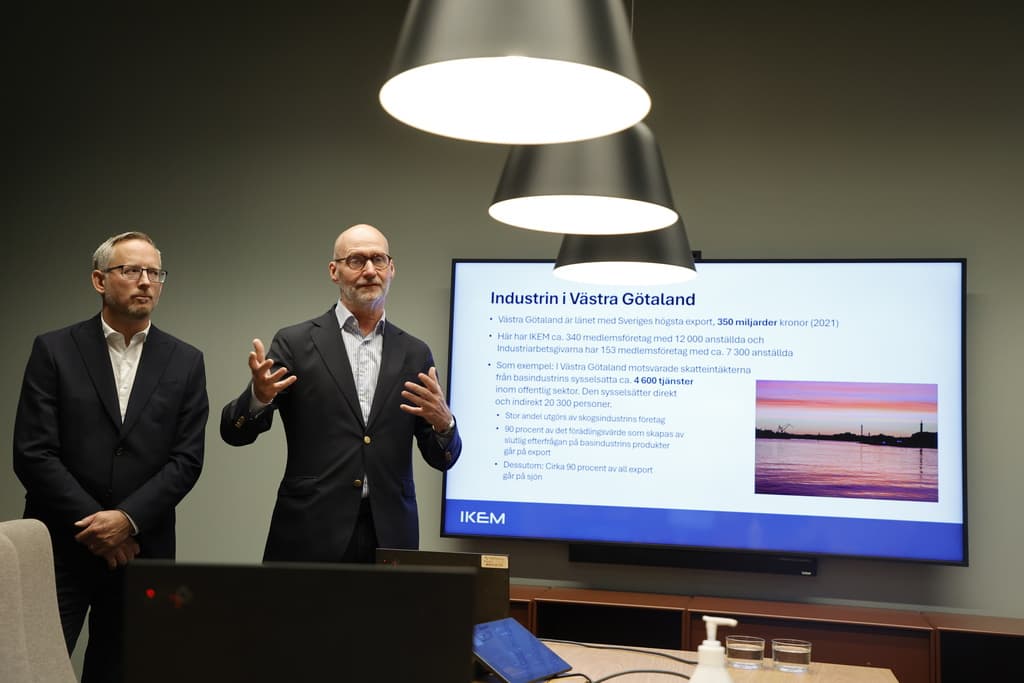The question of shortening working hours is not new – but has been given new life and can become highly topical this autumn.
Among other things, after the issue was picked up by the Social Democrats.
For us, it's nothing strange to handle such a question, it has existed for a long time. What's new is that it has become a political question, but it's a question for the labour market, says Per Hidesten.
Several dark clouds
Together with Henrik Stävberg, chief negotiator at Ikem (innovations- and chemical industries), Hidesten called a press conference in central Gothenburg on Wednesday due to the upcoming collective bargaining round. The industrial agreement is guiding for the rest of the labour market.
The two represent a total of 2,250 companies with 160,000 employees in the base and process industries. The future being painted is gloomy, where low growth in productivity, high labour costs, and a chaotic world are worrying companies.
It's not a good situation, says Henrik Stävberg.
"Don't see it at all the same way"
From the counterpart – the trade unions – it has sounded different during the spring and summer. There, it is pointed out that Swedish industrial companies have made large profits in 2023, among other things thanks to a weak Swedish krona that has benefited exports.
We have been forced to handle two severe crises (the coronavirus pandemic and the war in Ukraine) and now the unions have gone out with a picture of there being reasons for upgrading. We don't see it at all the same way, says Per Hidesten.
TT: At the same time, inflation has been pushed down and the Swedish Central Bank has announced further interest rate cuts. Does the economic situation look like it's brightening?
The turnaround is so much further ahead. From the perspective of those we represent, there is a long way to go, says Henrik Stävberg.
The industrial agreement, which is a cooperation agreement between the unions and employers in the industry, was signed on March 18, 1997. The industrial agreement is guiding for the entire labour market.
The current two-year agreement expires on March 31, 2025, and involves a total value of 7.4 percent – 4.1 the first year and 3.3 the second year.
Negotiations between the parties on a new agreement will begin at the turn of the year.






